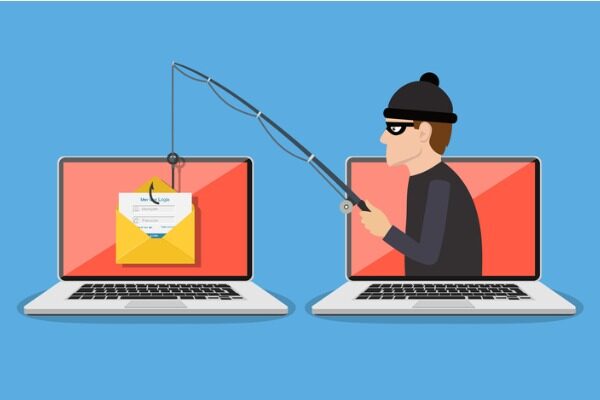Since the start of the coronavirus pandemic, the number of cyber crime cases has risen, with criminals targeting those who work from home.
Freelance Corner has partnered with the West Midlands Cyber Crime Unit to provide advice to freelancers and help you protect your business. You can listen to our podcast on this topic, with Patrick from the Cyber Crime Unit, below.
What is cyber crime?
There are two types of cyber crime: cyber enabled crime and cyber dependent crime. “Unfortunately, 70-80 percent of fraud now is carried out using computers and phishing emails,” Patrick told Freelance Corner. “It’s carrying out fraud online, which would quite easily fit into the cyber enabled crime side of things. Cyber dependent is having a computer, using a computer network, and attacking someone else’s computer and computer network.
“It’s certainly not just about stealing peoples’ passwords, although that’s actually has been, and will always be, a big part of this unfortunately. It allows gateways into the massive number of cyber crimes.”
What do hackers do with stolen information?
One of the main motivations for hackers is financial, being able to steal money from unsuspecting victims. However, hackers also steal data and identification details. Patrick said: “Often [the victim’s] identity is used as well, so that people can commit other crimes under a false details, and/or potentially escape and evade capture under false identities.
Some people use hackers to get ahead of their competition too. Patrick explained that there are services available on the dark web that allow someone to pay a hacker to crash the systems of a competitor. For freelancers, this can be particularly worrying, as the financial implications of this could be huge.

What can freelancers do to protect their business from cyber crime?
1. Improve your digital hygiene
“If you Google the top 10 passwords, I think you’ll be surprised because this year, the World Wide Web is 31 years old, and people are still using ‘password123’ and ‘123456’ and 10 ‘98764’”, Patrick tells us.
“Digital hygiene is having really good strong passwords. The advice from the National Cyber Security Centre is to use three random words”, Patrick advises. However, use this with caution, and avoid using the names of your children or pets.
You must also avoid using the same password for every account. “What some people do, which is a bit of a spin on that, is they have the same password for each account but then for each account, they have the first and last letter from the website. So Facebook could be the same password as Twitter, but instead of having a different password, they have the same password, and they put F and B at the end. So these are common unfortunate shortcuts that people make with passwords.”
2. Make your Wi-Fi cyber safe
Most home Wi-Fi routers arrive with a default password, which Patrick reveals a hacker could easily find on the dark web.
Patrick advised: “The common thing is people don’t change the default password, and then unfortunately, they connect all their devices, including their work laptops, to it. They’ve connected to somewhere, which is the gateway into all their online activity, with a password that’s available for someone to find. So, changing passwords on routers is a key thing.
“My advice would be to change the router’s password and name. A common mistake that people make when they change the name is to name it ‘hackers try if you dare’. That’s a massive invite. And they will hack you, I can assure you. But yeah, you can change the name and the default password, which is extremely good idea to do.”
3. Use a credit check service
Since the start of the pandemic, there have been some unfortunate stories of businesses who have had their identity stolen, with fraudsters applying for loans and grants on behalf of the company and pocketing the money for themselves.
Patrick says: “One of the good ways around that would be to employ some sort of credit monitoring service, so that they would get an alert the first time that happened and not six months later, when some person has gone to town on them and has applied for as many loans as they can. Worst case scenario, they would have still had that person apply on their behalf, fraudulently, but they would have known about it straightaway.”
Without any exception, you simply just do not use a public Wi-Fi without a virtual private network.
4. Use a virtual private network (VPN)
Freelancers are known for working from cafes, co-working spaces, and other public places, but Patrick warns that connecting to a public Wi-Fi is only safe if using a VPN: “Without any exception, you simply just do not use a public Wi-Fi without a virtual private network. Even with a virtual private network. I would say, you should be very cautious as to the sensitivity of the activity you do.”
One question the Cyber Crime Unit gets asked frequently is: what’s safer, using public Wi-Fi, or using a mobile phone data as a personal hotspot? Patrick said there’s an easy answer: “If you’ve got enough data, it’s much safer to use your mobile phone as either your mobile phone data allowance, or to tether your laptop to.
“Using the network data allowance is actually safer than public Wi-Fi. Feel free to use public Wi-Fi, but I would be conscious of the sensitivity of the activity. Without any exception, use a virtual private network, because people can close down the coffee shop Wi-Fi and create a fake Wi-Fi hotspot. A hacker could be sitting behind you in the coffee shop, looking at everything that you’re doing on your laptop.”
For more information, listen to the podcast episode here. You can also read to the National Cyber Security Centre’s guide to cyber security for small businesses, read the West Midlands Regional Cyber Crime Unit’s advice here, or check out Patrick’s podcast: Cyber Threat Weekly.







